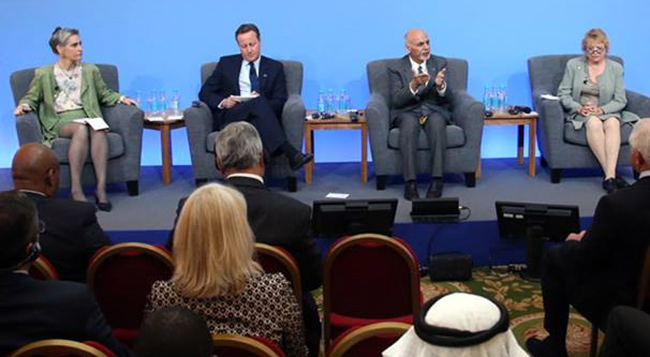KABUL - President Ashraf Ghani has said administrative corruption often stokes political tensions, a reality that must be understood.
Addressing the Anti-Corruption Summit in London on Thursday, the president said: “Corruption fuels political tension, a fact we must understand.”
A statement from the Presidential Palace quoted Ghani as highlighting police investigations, judicial action and prosecution of the corruption-tainted individuals.
He added people of developing countries were tired of the curse and banishing the scourge was one of their top demands.
Ghani welcomed the creation of a special working group by Britain and Afghanistan to combat organised crime. He also referred to the possibility of innocent individuals being charged with graft.
In order to foreclose such a possibility, the president stressed the need for judicial organs to insist on the production of concrete evidence. In many cases, flaws benefitted influential people, he observed.
“We should mention the existing problems, acknowledge them and fashion a workable strategy, based on public demands, to deal with the challenge,” the president remarked.
However, he called for national sovereignty in the fight against the menace. In the absence of national sovereignty, he explained, an anti-graft drive would not yield the desired results.
Ghani stressed strengthening global cooperation in the war on corruption, saying the issue should not be assigned to the backyard after elections.
Ahead of the event, Ghani said in an interview he had no issue with British Premier David Cameron calling Afghanistan as one of the most corrupt countries on earth.
The West had a duty to help as “the most significant driver of corruption is the narcotic cartel”, driving terrorism, extremism and corruption, he argued.
Ghani remarked: “England was the first to invent grand corruption in the 18th century. It took decades to overcome it. We don’t ask for decades but this is a process of change.” (Pajhwok)
Home » Afghanistan » Corruption Stoking Political Tension: President Ashraf Ghani
Corruption Stoking Political Tension: President Ashraf Ghani

